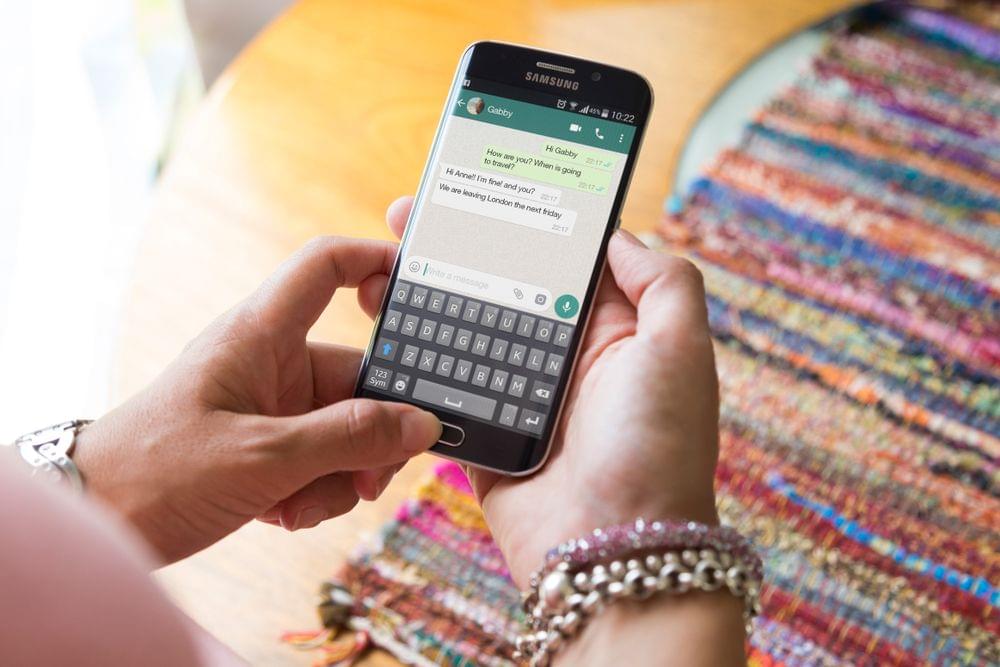

WhatsApp is one of the most popular chatting apps in the world, with an estimated 1.5 billion monthly users. In 2019, about 68.1 million users installed WhatsApp in the USA solely, and its popularity is predicted to grow.
The bulk of WhatsApp’s user base is made up of kids who utilize the app for communication and entertainment. They don’t think much about how safe WhatsApp is and freely share their personal details with friends.
However, WhatsApp is often a topic of security-related discussions worldwide, so its accessibility to kids is a concern rather than a benefit.
Table Of Contents
Why Kids Love WhatsApp
The main reason for WhatsApp’s popularity is its accessibility. It’s free and easy to use, so any kid can sign up with a couple of clicks. The app is available in over 109 countries and supports about 65 languages.
WhatsApp has a simple interface, allows you to call for free, and supports group chats. These are pretty big selling points for kids to use it daily and share content. But many adults are bothered by a question, “Is WhatsApp safe for children?”
How Secure Is WhatsApp and What Are Its Main Safety Issues?
Although developers claim that WhatsApp is secure, with its messages and calls encrypted, it has several critical drawbacks.
No Status Privacy
As WhatsApp composes a contact list from the ones in your phone book, it’s important to keep your app status hidden from other users. WhatsApp fails to hide your availability, so anyone from your contact book can see when you’re online.
That’s perfectly fine if you don’t add strangers to your contact list. But what if you save all the numbers just to know who’s calling?
Although WhatsApp allows you to control who can see your status, this feature can be useless if your contact list is huge.
Malware Threats

WhatsApp users often become victims of receiving malware threats. Their devices get corrupted after following infected links or downloading files that contain viruses. Malware is used to hack your phone and send your money to hackers. Unfortunately, kids aren’t careful WhatsApp users, which makes them the number one target for scammers.
Poorly Encrypted Messages
WhatsApp encrypts all messages so that only a sender and a recipient can see what’s inside. However, the encryption isn’t totally foolproof. The reality is anyone can read a message if the data is backed up on Google Drive.
What’s more, WhatsApp signed an agreement with Google to allow users to store messages in its cloud storage.
Is WhatsApp Safe for Underaged Kids? 3 Primary Dangers
As was mentioned earlier, WhatsApp has a few severe security drawbacks. An adult can become a victim of fraud while using the app, so a kid is an easy prey, too. And, unlike adults, children can get into even worse trouble than losing money.
The most significant WhatsApp dangers for kids are:
1. Online predators. In search of underage victims, predators often create fake accounts on instant messengers. WhatsApp is their perfect match, as they can see who is online and start communicating. It’s often not a problem for a predator to befriend a kid and pressure them to share obscene photos via WhatsApp. As a result, a child can become a victim of sexual abuse.
2. Cyberbullies. Kids often create group chats to share entertaining videos, funny photos, and explicit content. The main concern here is that some young people think it’s funny to send pics of themselves.
If at least one member of a group chat shares it on the web, a kid can be mocked up by peers and become a target of cyberbullying.
3. Scammers. Just the same as predators and bullies, scammers seek victims online and on instant messengers. It’s pretty easy for them to infect your kid’s device by sending them a corrupted link that looks engaging. When children open it, their device gets infected, and their personal details are transferred to online scammers.
How to Protect My Kid From the Dangers of WhatsApp?

To prevent your kid from being bullied by peers, abused by predators, or tricked by scammers, you may consider monitoring their online activity. A proven way to do it is by using monitoring software.
A parental control app, such as mSpy, can help you monitor your kid’s WhatsApp messages, view their contacts, and check the time and date of each conversation. And if someone suspicious calls your kid, you can easily block the call and reduce the risks of your kid getting into trouble.
What Else Can I Do With mSpy?
In addition to checking out your kid’s WhatsApp, mSpy allows you to monitor other texting apps, such as Instagram, Facebook, Viber, Snapchat, etc. The app also makes it possible to view sent and received media files, block unwanted contacts, and track your kid’s real-time locations.
As mSpy sends all the collected information to your dashboard, you can see what your kid is up to the right on your smartphone. What’s more, you can set restricted words and get alerts every time your kid types them in a search bar or texts them to a friend.
Final Thoughts: Is It Safe to Use WhatsApp?
Although WhatsApp is one of the most-used messaging apps in the world, it may not be a good idea for kids to chat there. WhatsApp security issues are pretty serious, so you may consider offering your kid another way to stay updated with their friends’ news.
As there is no option to set up parental controls in WhatsApp for kids, try using a parental control app. mSpy will help you prevent your kid from being harassed, bullied, or scammed when using their favorite messenger.



